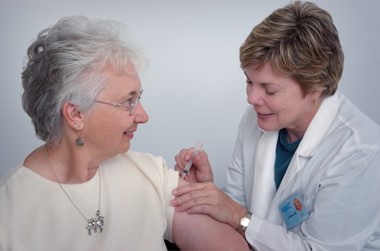Every living person requires routine check-ups and medical screenings to stay on top of their health and wellness, spotting potential issues before they grow too severe to treat. Chike Aguh, Gynecologist explains that women, however, need a particularly wide array of screenings to monitor their health as thoroughly as possible.
The most important screenings in healthcare include blood pressure screenings, blood tests, colonoscopies, dental exams, eye exams, and dermatologic scans for skin cancer. Women, however, should consider these screenings, as well as bone density checks, cervical cancer screenings, and mammograms. Age plays a role in deciding the frequency of each exam, with those over the age of 40 typically at a higher risk for developing cancer, or other conditions.
To better understand the importance of each screening and the frequency with which women should get checked, it helps to look at each test individually and which patients are most at risk of the health issues they seek to identify.
Screening for High Blood Pressure
While low-risk patients between the ages of 18 and 39 can afford to put off blood pressure checks for 3-5 years at a time, those 40 and over may wish to screen annually. Catching hypertension early and starting immediate treatment can reduce the risk of stroke, heart attack, or kidney disease.
Some patients are at higher risk and may wish to get checked annually regardless of age. Such patients include:
- Heavy drinkers
- Nicotine users
- Overweight or obese patients
- Patients with unhealthy diets
- Patients with limited physical activity
- Pregnant women
- Women of African American descent
- Those already suffering from heart disease or hypertension
Annual Blood Tests
Blood tests look at basic physical health indicators such as blood sugar and cholesterol. However, they also help to detect conditions such as adult-onset diabetes and various autoimmune diseases. Blood tests should therefore be a part of any health-minded patient’s annual check-up.
Osteoporosis Screenings
While the above recommendations largely apply to men as well as women, osteoporosis is of unique concern to female patients. Since osteoporosis does not typically occur until later in life, it is suggested that women begin scheduling bone density tests at their doctor’s recommendation beginning at ages 65 and above.

Cervical Cancer Screenings
Every woman should meet at least annually with their OB-GYN, but special attention should be given to Pap smears. Women in their 20s will want to test for cervical cancer every 3 years or so, while women 30 and above can extend this timeframe to roughly 5 years and schedule their Pap smear around their regular HPV test.
Checking for Colon Cancer
Colonoscopy recommendations for women are similar to those for men. Women over the age of 45 should screen at least every 10 years unless otherwise directed by their physician due to unwanted results or identification of high risk.
Routine Dental Visits
Women wanting to keep their teeth looking great and their gums free from disease should visit the dentist regularly twice a year.
Regular Eye Exams
Eye exam recommendations vary by age, according to the American Academy of Ophthalmology. Those with normal eye health should visit at least once or twice per decade, starting in their 20s. They should increase this to every year or two if:
- They are 65 or over
- They are diabetic
- Their family shares high risk of eye disease
- They suffer from high blood pressure
- They already wear glasses or contacts
Yearly Mammograms
Even women who know how to check for lumps should still schedule annual mammograms, preferably beginning at age 40 but no later than 45. Those 55 and above can decrease their visits to every 2 years if previous screenings have shown normal results.
Skin Cancer Screenings
Women under the age of 49 run a greater risk of developing melanoma than most men of similar age. This is especially true of white women of non-Hispanic origin. Yearly screenings are recommended, particularly for those who sprout new moles or other unexpected skin changes.
Conclusion
It may sound like organizing all of the necessary screenings to stay in good health is a full-time job in and of itself, but women can easily stay on top of the above recommendations by keeping strong lines of communication with their primary healthcare providers. Those already behind on their screenings should take action today before the consequences are too great.



